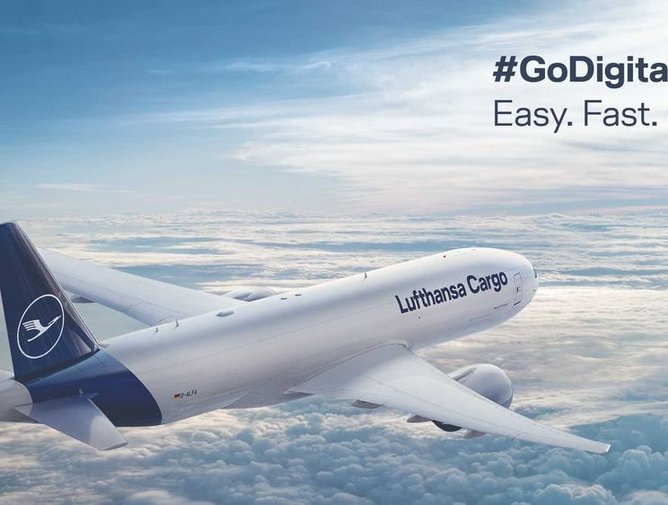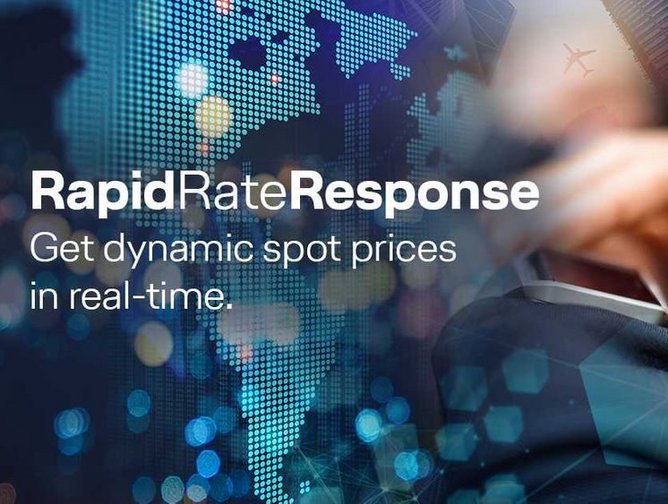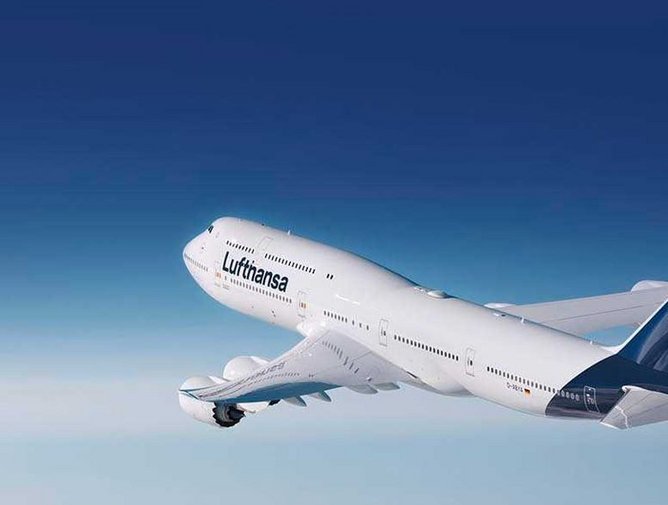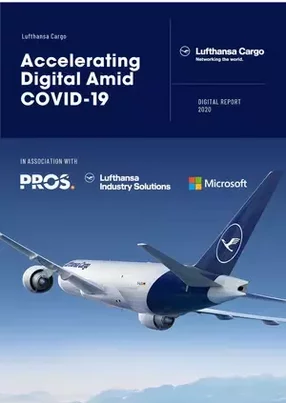Lufthansa is one of the world’s most renowned airlines. With hubs in Frankfurt and Munich, the organisation is committed to operating one of the most technologically-advanced and fuel-efficient fleets globally. Its division, Lufthansa Cargo, is a leader in air freight and serves 300 destinations across over 100 countries.
Jochen Göttelmann is the Chief Information Officer at Lufthansa Cargo. Over the past 18 months, Lufthansa has refreshed its existing infrastructure and applications significantly. “We’ve defined a clear data centre strategy and it will mean that every new project and application will be cloud native,” says Göttelmann. “The cloud strategy came just in time for the coronavirus pandemic. We could seamlessly make our staff work from home with our cloud-based collaboration and communication platforms. On the business side our main focus remains on the modernisation of our sales applications and the implementation of new digital services to our clients.” At the end of last year, the firm introduced a new dynamic pricing and has recently launched a smart booking API to increase the connectivity to their partner and customer network. The next big milestone will be a completely refreshed client-facing booking frontend in November. Göttelmann is also helping to renovate the internal sales system like CRM and the pricing tools. “It’s clear our current priority lies with the sales side, however, we continue to invest in our other domains too. In handling, we got rid of our legacy host application already some years ago, and now have a state-of-the-art IT platform which is the base for customer oriented process innovations like eFreight, targeting for 100% paperless document flows, or self-service terminals to reduce waiting time for the truckers. In addition, a completely new production planning system is introduced for the internal capacity planning, steering and monitoring in our Frankfurt freight hub. And last but not least, we have migrated our analytics environment to the cloud and will also modernise our traditional BI and data warehouse over the next years to better support data-driven decisions. We still invest lots in IT and plan to continue that as we move forward as well.”
Boris Hueske, Head of Digital Transformation, states that the impact of digitalisation accelerates the change happening in the logistics and transportation industry. This also requires the right perspective on IT and data as a production factor. “We want to drive digitalisation in the air freight industry to offer our customers better, faster and more convenient services,” he says. “We’ve been quite busy over the past one and half years but the global situation is very different now. Although we already had some good solutions in place prior to COVID-19, we extended our services on digitised processes. For example the high share of electronic documents we receive in the meantime allows us to pre-check the information provided by the customer on a shipment and give feedback upfront on completeness and correctness which makes the freight delivery at the airport much easier and faster.”
“We’ve accelerated the rollout of our new pricing services, for dynamic prices, the spot quotations. The automated price calculation is based on analytics available for our customers 24/7 which makes it easier to get an offer. We improved our API services for our customers which allows direct bookings by customer interfaces through the API into our system. The tracking services through the API are improved and provide an automated update if there’s a change in the shipment status. We’ve had a full set of improvements during the past 18 months based on digitalised processes, the improved IT infrastructure and new technology focusing on customer-driven services.”
Hueske adds that he believes that logistics still has work to do to catch up with other industries that are further along on their digital transformation journeys. “Compared to other sectors logistics is a little behind the digitalisation development but also in logistics digitalisation accelerates and was massively accelerated by the COVID19 crisis,” he explains. “The industry still has papers left in the processes that accompany shipments and is still working on modernising backend IT systems. One topic we are working on is to further digitalise the booking process of further services that couldn’t be booked through online services yet. It’s really about driving the digital processes forward for our customers. Our core processes shall become digital, real time and convenient”
Göttelmann believes the coronavirus has actually acted as a catalyst for the acceleration of digital initiatives at Lufthansa. “It’s clear that COVID-19 has a severe impact on our investment capabilities as an airline group. But it has sped up a number of initiatives to drive automation and support new working models in a bid to connect our clients and partners,” adds Göttelmann. “I believe that some of our projects have even accelerated over the past few months as a result of the crisis. IT always has a cost component, but is also a strong enabler to make a business run more efficient and to drive costs down through automation and digitalisation.”
“It’s all about information and transparency,” adds Hueske. “It’s important to provide customers with as much information as early as possible, whether that’s about the capacity available or shipment status. But, this is centered around the availability of data and the right interfaces through our portal or APIs. We’re seeing a large trend in online booking because it is the most accurate information available and the customer is in need of this information at the moment. We’ve been lucky that we’ve been proactive enough in the past to develop solutions and we’ve got some good services in place for our customers and accelerate that rollout.”
Hueske recognises that the global situation has been difficult to navigate, particularly for airlines, however, he stresses it is why it’s key to gain ground on harnessing efficiency in digitalisation. “It’s a very unique situation in air freight and for airlines at the moment,” he explains. “COVID-19 has majorly impacted the industry and we have to consider that in the future too. We had significant reduction in capacity in our markets on the passenger side, with almost 50% of the capacity being provided through passenger aircraft. We don’t know how fast this will change either. However, it shows the importance of data insights and analytics. We confirm our goal to have greater data insights and leverage data in the best way to improve services and transparency for our customers.”
With the future in mind, Göttelmann adds that focusing on what is actually generating value is essential moving forward. “From an IT side, it’s all about continuing to modernise the landscape to enable the digital transformation,” says Göttelmann. “It’s now more important than ever before to determine what is adding value to the company and what no longer serves us. That’s the challenge for us; we need to revise our service portfolio. We also have to ensure we’re flexible and enable our planning and governance processes to be faster and more agile.”




